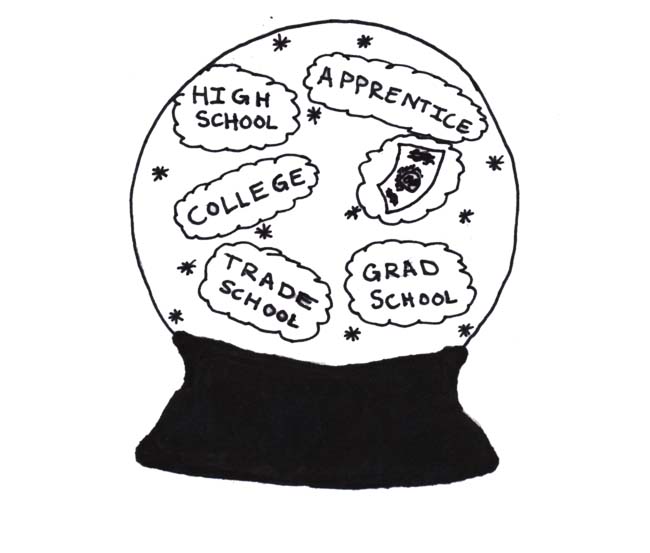The exorbitant tuition rates of modern undergraduate education have made our culture obsessed with the debate about the necessity of going to college. As a reader, can you remember the last time that you picked up an issue of The Flat Hat that did not refer to tuition or to the debate about whether all the money that you — or your parents — are spending is worth it? Probably not. The problem with this debate, however, is that we have the tendency to depersonalize it. We focus on how much a college degree is likely to help an abstract, hypothetical version of you rather than how much it is likely to help the actual you.
Institutions of higher education acknowledge that students are different. To cater to students’s varying interests and skills, most schools offer a vast array of majors, minors and concentrations. However, when the subject of earning a degree arises, the rhetoric becomes polarizing. It appears as if we are caught between Timothy Leary’s persistent recommendation to “turn on, tune in, drop out” and academics like the President of Miami Dade College, Dr. Eduardo Padron. In the American Dream 2.0 report, Padron said that “Anyone who does not get a college credential will never escape the cycle of poverty.”
Enough college dropouts have become billionaire CEOs over the last few decades for us to realize the fallacious nature of Padron’s claim. On the other hand, while Leary’s endorsement may have helped Steve Jobs, I think we can agree that it should never have been viewed as a universal prescription.
Robert Shireman, the former deputy undersecretary at the U.S. Department of Education, recently took a more balanced approach to higher education. Shireman said, “While education improves the odds of a higher income, it is no guarantee. Likewise, the lack of a degree does not necessarily sentence you to the poorhouse.” I would elaborate on Shireman’s comments and argue that as a culture, Americans should throw away our lofty ideal of universal higher education. We should embrace alternatives and hybrids that are as carefully crafted around individuals as college majors. Some people are best suited for a trade school, while others would benefit from an apprenticeship with supplementary online classes.
Most at the College of William and Mary are strong students with a healthy love of learning. Therefore, higher education and, moreover, the College, is right for most students here. However, the best education system varies with the individual. It may be tempting to think that what is right for us is right for everybody, but it is not. The statistics show that it is still possible to do well without a college degree. Our societal stigmatization of college alternatives is forcing many people down a very expensive path in pursuit of a piece of paper they may not need as much as we all like to think they do. If we cannot grasp this notion, then perhaps higher education is doing a poor job of teaching us to think academically.
Email Max Cea at mrcea@email.wm.edu.




































